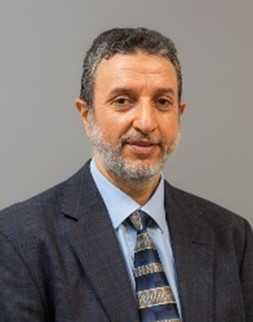We warmly welcome our guest professor Tarek Zayed at ETH Zurich!
Prof. Tarek Zayed from Hong Kong Polytechnic University is currently visiting Prof Bryan Adey's Infrastructure Management group for one week to talk about "Intelligent and Digital Construction: Modular, Robotics, and Automated Tools".

Dr. external page Tarek Zayed conducted research on infrastructure/asset management, simulation, fuzzy, optimization, risk assessment, data mining, and artificial intelligence applications in construction and municipal underground systems. He has more than 30 years of professional experience working in the construction industry and in academic posts in the USA, Canada, Egypt, and Hong Kong. Dr. Zayed has published more than 600 journal and conference articles and performed research with a significant amount of funding. He is ranked top 1.0% of scholars in Civil Engineering worldwide based on a study by Stanford University. Dr. Zayed is also a fellow of the American Society of Civil Engineers (F.ASCE), the Canadian Society for Civil Engineering (F.CSCE), and the Hong Kong Institution of Engineers (F.HKIE).
Prof. Tarek Zayed will hold a presentation at ETH Zürich on Tuesday 13 February to talk about Intelligent and Digital Construction: Modular, Robotics, and Automated Tools.
Abstract Presentation:
Modular construction (MC) is an innovative approach to construction in which a building’s free-standing integrated components are produced in a manufacturing plant before being delivered to the construction site for installation. It is widely considered that MC has significant benefits compared with traditional construction methods, including improved construction safety, elevated construction speed, and reduced waste and energy consumption. Prof. Tarek Zayed led his team to conduct a series of studies covering the whole life cycle of MC to further enhance the performance of this innovative construction approach. His research mainly includes 1) logistics optimization to reduce module transportation time and cost, 2) site layout planning to identify the optimum crane and truck locations, 3) crane operation monitoring to prevent crane collisions and warn dynamic hazards in real-time, 4) scheduling optimization to generate the most efficient module lifting sequence, 5) module health evaluation to monitor the life-cycle health and status of modules, 6) surface/subsurface structure scanning to detect the potential defects of building floors. These studies integrated diverse, innovative technologies, e.g., meta-modeling, simulation, optimization, IoT, robotics, BIM, ground penetrating radar (GPR), LiDAR, laser scanning, and multi-sensing technologies to advance the safety, productivity, and sustainability of MC and the construction industry. Extensive effort was exerted to model tower crane operation autonomously with less dependence on the operator, accounting for safety, productivity, and optimum location. A robot was designed and manufactured to inspect and assess corrosivity in concrete structures autonomously. This seminar will present interpretation algorithms to understand multi-technologies' results and the main findings of these research works. The developed approach is believed to help contractors identify critical deficiencies, make informed decisions, and focus limited funding on the most deserving activities in the process.
The Infrastructure Management Group mission is to improve the construction and management of infrastructure. For more information visit our webpage